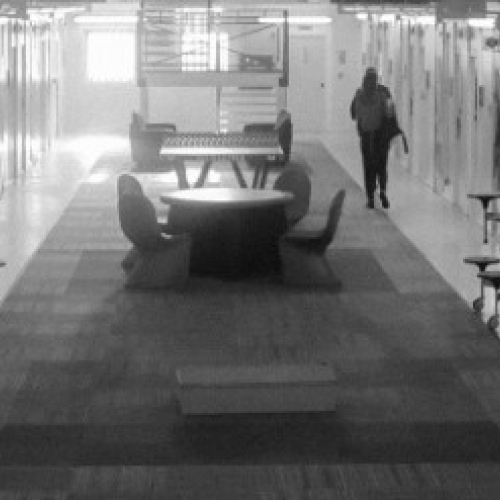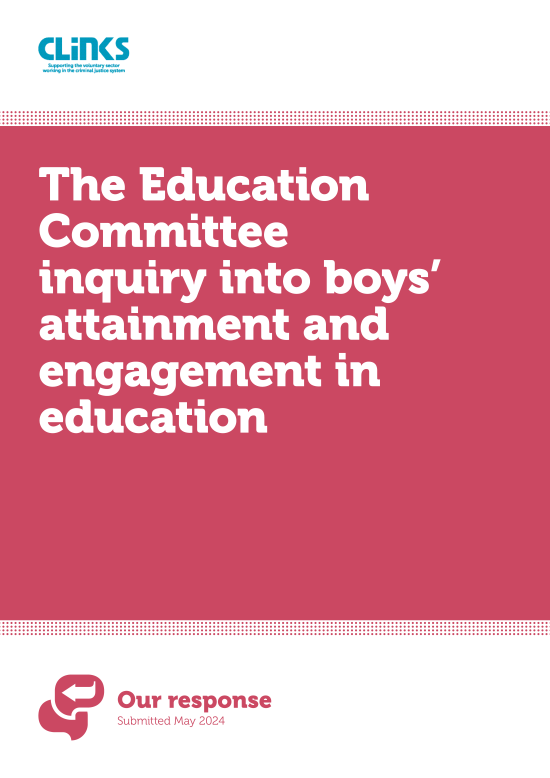For many years, people have lived in prisons struggling under the pressure of an increasing population. In December 2019, the prison population was around 82,300, equating to 98% of the useable operational capacity of the estate. Overcrowding remains a significant issue in most prisons—particularly in local and category C training prisons, where most people are held. The need to isolate prisoners moving between prisons for 14 days on arrival, due to Covid-19, has also created difficulties in tackling overcrowding, particularly in the local prisons.
People who are being released from prison (around 5,000 every month, which is the average number pre-virus) are entering an unrecognisable world. Services aren’t operating as usual and many people will find it harder to access what they need. There are a host of new societal rules and guidance to adhere to. Lockdown compounds what is already a hugely difficult time for people leaving prison.
Support in prison is being offered by multiple providers, working together to meet people’s needs. Innovative ways of working include Skype substance misuse groups, identical activity packs sent to children and their parents in prison, increased use of in-cell phones and the email a prisoner initiative.
One voluntary organisation working within prisons said:
‘Communication into and out of the prison has become difficult and much slower than normal due to reduced staffing within the prison and the restriction of movement around the prison itself. Our service has adapted to deliver our service differently to meet the needs of those we work with. This has only been possible by working in partnership with other services.’
Maintaining contact with family and friends
People in prison rely on contact with the outside world to feel connected and prepare for life in the community. Covid-19 has made this almost impossible. In-person family visits or face-to-face external support was unavailable for months, although some establishments are now starting to re-introduce them. Resettlement plans are made via digital apps and passing paper forms through cell doors. There is no work or education available to prisoners and limited access to exercise outside the cell. Those sharing cells have no access to respite from others. The effect of these changes on the mental and physical health of prisoners – and the people supporting them – cannot be underestimated. Accounts from inside prisons suggest that levels of self-harm and suicide in custody have dramatically increased during the crisis.
Video conferencing for families has been implemented in some prisons and this has started to have an impact. Video calls are currently only available in 64 of the 120 prisons in England and Wales, and access is limited to one call of up to 30 minutes per month per person. Prisoners and their families are reporting that being able to see their families in their own home is, in some circumstances, better than in-person visits. It gives them the opportunity to see their loved ones in their own environment, and seems to be less traumatising for children as they do not have to travel long distances and go through invasive security procedures. However, after long periods of time away, we need to bear in mind the impact of people seeing their homes again on video calls. Prisons should recognise the emotional impact and provide additional support with individuals’ mental wellbeing.
Meeting accommodation needs
Housing provision has, for most people, been easier to access for people being released from custody than before the pandemic, with the government instructing local authorities to take an “everyone in” approach and the creation of the local Homeless Prevention Taskforces. In Plymouth, two local providers have joined with the council to dramatically increase their housing provision. In neighbouring Cornwall the local authority has formed a housing and homeless Covid-19 cell. They have repurposed housing previously earmarked for shared ownership for people presenting as homeless, reopened decommissioned supported housing projects and have set up modular housing units that are currently housing a number of people straight from custody with excellent results.
The approach to housing during the pandemic has been a welcome change as this has been something the voluntary sector has been working towards for years. Much work is happening across the country to advocate that ‘priority need’ criteria, which can often prevent someone leaving prison who doesn’t reach the threshold for accessing accommodation, is no longer applied. Some local authorities are already aspiring to offer everyone without a home a suitable offer of accommodation in the longer term. However, homelessness is now on the rise again, and there’s less accommodation available now compared to the early stages of the pandemic. Only time will tell us how this will look in six months or a year.
What next?
The slow process towards recovery has begun, with prisons prioritising the return of family visits and a return to the prison regime by opening workshops and education. See our blog summarising the government guidance, the National Framework for Prison Regimes and Services.
It has been incredibly challenging for staff and clients, but one thing is clear, there has been a herculean effort to meet the needs of people experiencing multiple disadvantage in prison and during resettlement. The question has shifted to how we move on from the pandemic. Will any reduction in prison overcrowding be maintained, or will we see large numbers of people return to prison? Will the people who have received emergency accommodation have anywhere to live once the crisis has passed? There is much to learn about the power of relationships in the response to the pandemic, as the urgency has led to coordinated measures that have at times felt impossible or unattainable in recent years. How we maintain some of these positive solutions far beyond the crisis is an immediate priority.
For more, read about the impact of Covid-19 on voluntary organisations three months into the pandemic.
Photo: © Andrew Aitchison
What's new
Blogs
HM Chief Inspector of Prisons Annual Report lays bare scale of challenge
Publications
The Education Committee inquiry into boys’ attainment and engagement in education
Latest on X
The role is for a leader from an organisation focused on racially minoritised people, with expertise in service delivery, policy, advocacy, or related areas in criminal justice. Racial disparities are present at every CJS stage. This role ensures these voices are central in shaping policy to help address and eradicate them. Apply by Mon 18 Nov, 10am. More info: https://www.clinks.org/voluntary-community-sector/vacancies/15566 #CriminalJustice #RR3 #RacialEquity

